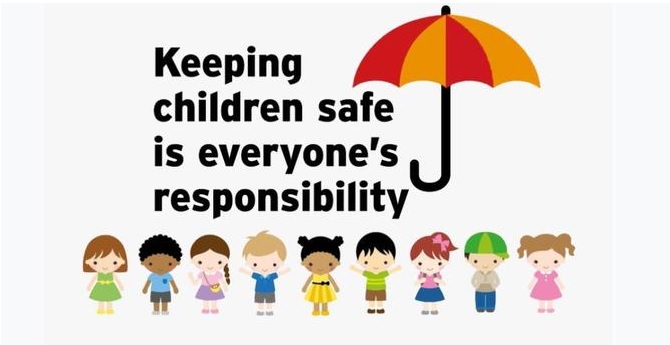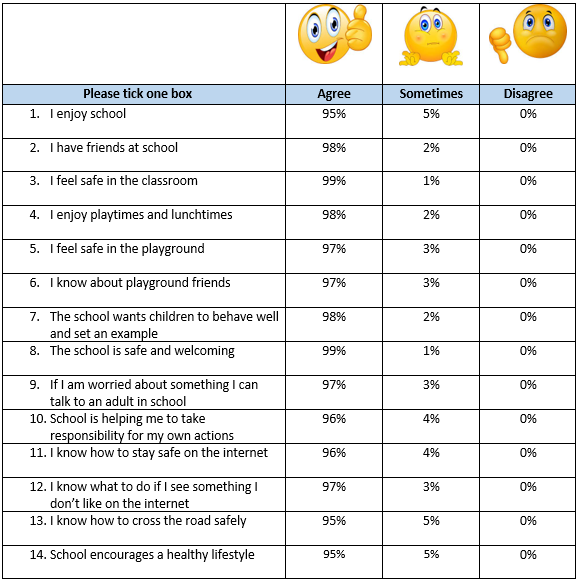Safeguarding Policy

Designated Safeguarding Lead: Mrs Jo Nicholson, Headteacher
Deputy Safeguarding Lead: Mr Peter Bostock, Deputy Headteacher
MAT Director with Safeguarding responsibility: Yvonne Coates
Safeguarding Governor: Julia Douglass
If you would like to speak to a member of the Safeguarding Team please contact the school office on 01642 360401 or email at office@stjosephsnorton.bhcet.org.uk
If you think a child is at immediate risk of harm, you must call the Police urgently on 999.
You can ring the Hartlepool Safeguarding Hub on 01429 284284, or the Stockton Safeguarding Hub on 01642 130080, to seek advice or speak to a Social Worker to report a concern.
Every human being has a value and dignity which we acknowledge as coming directly from God’s creation of male and female in his own image and likeness. This implies a duty to value all people and therefore to support them and protect them from harm.
Safeguarding is our priority at St. Joseph's Catholic Primary School. Safeguarding children – the action we take to promote the welfare of children and protect them from harm – is everyone’s responsibility. Everyone who comes into contact with children and families has a role to play. All school staff have Level 1 training annually, along with termly refresher training. In addition, we have a team of staff who are trained to both Level 2 and Level 3 in Safeguarding.
Safeguarding and promoting the welfare of children is defined by Working Together to Safeguard Children, July 2018 as:
- Protecting children from maltreatment
- Preventing impairment of children’s health and or development
- Ensuring that children are growing up in circumstances consistent with the provision of safe and effective care
- Taking action to enable all children to have the best outcomes.
For the purposes of this guidance children includes everyone under the age of 18.
The Trust fully recognises the responsibilities and the duty placed upon it to have arrangements to safeguard and promote the welfare of all students at the School. St Joseph’s Catholic Academy, has adopted this safeguarding policy but their practice will built around the procedures and protocols within Stockton on Tees Local Authority.
Safeguarding questionnaire completed by the children.

Statement on British Values
The promotion of ‘British Values’ is central to Catholic education because British values have their origin in the Christian values of our nation. British values are considered by the present government to be:
- Democracy
- Rule of Law
- Individual Liberty
- Mutual Respect
- Tolerance of those of Different Faiths and Beliefs
At St Joseph’s School we recognise, not only the importance of helping pupils to develop academically but also spiritually, morally, socially and culturally. Our aim is that they are fully prepared for life in in British society, to take their role as good citizens, able to make the best possible contribution to the common good. Within a framework of Catholic Christian Values, we teach the importance of British Values by going much deeper into the meaning of what it is to live a good life. This provides the context and meaning for understanding why British values are important.
Our framework for understanding British values draws on the example of Jesus and his welcome and inclusion of all, which is developed in Catholic Social Teaching. At St Joseph’s we provide an education which focuses on the formation of the whole person and on our vocation and purpose in life. We place a significant emphasis on the celebration of individuality and difference within our communities and our calling to work for the Common Good, in the service of others.
Our Catholic Ethos makes a tangible difference to the way we work together and with our wider communities. Within this framework it would be impossible to overlook the government’s view of British values expressed as ‘democracy, rule of law, individual liberty, mutual respect and tolerance of those of different faiths and beliefs’.
The examples below are an indication of some of the many ways we seek to embed British Values at St Joseph’s and should be seen as an indication of our approach rather than an exhaustive list.
| Democracy | Rule of Law | Individual Liberty | Mutual Respect | Tolerance of other faiths and beliefs |
|---|---|---|---|---|
| School Council | A clear behaviour policy | An inclusive mission and vision statement | RE lessons which focus on tolerance | |
| Studying democracy in history lessons | Class charter | Reinforcing high expectations of good manners and respect for others | Study of other faiths in RE lesosns | |
| Ensuring all pupils are listened to by adults | Highlighting the rules of the church and God through the RE curriculum | RE and PSHCE lessons which emphasise that every person is created in the image and likeness of God | Visitors | |

At St Joseph’s Catholic Academy, we aim to prepare our children for a future in a world which is shaped by technology. The online world provides many opportunities; however, it also present risks and challenges. We have a duty to ensure that all children and adults in our school are protected from potential harm online, whether or not they are using St. Joseph’s network and devices.
The DSL (Mr McGeeney) is the e-safety lead at St. Joseph’s. All staff are responsible for monitoring Online Safety in school. If you have any concerns about online safety please contact any member of staff.
Working in partnership with children, their parents, carers and other agencies, is essential in promoting children’s welfare, and in helping young people to be responsible in their approach to online safety. All our pupils have agreed to our Online Safety Agreement for Pupils.
Below you will find a range of useful Parent Guides to help you keep your child safe while online.
As parents you can help by:
- having open discussions about your expectations and how to stay safe online
- together make a set of rules for using the internet, ensure children understand the dangers
- closely monitoring the sites your children are accessing
- the computer/tablet must be in a family room so you can see what’s going on
- if your child accidentally goes to an unsuitable website they should tell you – you can delete it from the ‘history’ folder and add the address to the parental control filter list
- limiting the amount of time your allow your child to spend online or using gaming devices
- discouraging the use of social network sites such as Facebook, Instagram and Snapchat – however, if your child does use social media remind them to only communicate with friends and family (people they know and trust in the real world), and also to ensure that their privacy settings are set high and to make them aware of how to report an incident if they feel uncomfortable.
- ensuring they do not give out any personal details to people they meet online including on games consoles such as Xbox and PS3.
- take notice of PEGI ratings – age rating is there for a reason and could mean that your child is being exposed to inappropriate materials if you do not abide by them.
- check your child’s devices daily to see what they have accessed and who they have connected with
Digital Safety for Children
It’s important your child realises that people online might not be who they say they are and could be dangerous. They should also be aware that any personal information they give out can be used in financial scams or for bullying.
To keep your child safe you should tell them not to:
- give out personal information to people they only know online – this includes name, home address, landline and mobile numbers, bank details, PIN numbers and passwords
- supply details for registration without asking for permission and help from you
- visit chat websites that aren’t fully moderated/supervised
- arrange to meet an online friend in person without your knowledge and permission
- give any indication of their age or sex in a personal email address or screen name
- keep anything that worries or upsets them online secret from you
- respond to unwanted emails or other messages
Child-friendly search engines
You should make sure your child is aware of child-friendly search engines. These filter out inappropriate internet sites so that they are able to search the internet safely. Your child can also use traditional search engines with safe search settings turned on.
Useful Links
- Keeping Children Safe Online
- Child Exploitation and Online Protection
- ThinkuKnow
- Parents’ Guide
- Wake Up Wednesday
- Parent Info Site
- CEOP Site
- Think You Know Site
- Internet Matters
- NSPCC – Preventing Abuse, Keeping Children Safe
- NetAware by National Society for the Prevention of Cruelty to Children
- Disrespect Nobody
- UK Safer Internet Centre
- Educate Against Hate
- The use of social media for online radicalisation
Children’s Guide
The School’s Implementation of the ‘Prevent Duty’ July 2015
WHAT IS THE PREVENT DUTY?
‘Prevent’ relates to the Counter Terrorism and Security Act 2015 which came into force on 1 July 2015. Since July 1 2015 there has been a duty on schools to have ‘due regard to the need to prevent people from being drawn into terrorism’.
This is called the Prevent duty. Schools are expected to encourage pupils to respect other people with particular regard to the protected characteristics set out in the Equality Act 2010 (age, disability, gender reassignment, marriage and civil partnership, pregnancy and maternity, race, religion and belief, sex and sexual orientation).
Schools can build pupils’ resilience to radicalisation by promoting fundamental British values and enabling them to challenge extremist views. As with all forms of safeguarding, adults should use their professional judgement in identifying an individual who may be at risk of radicalisation.
WHAT IS RADICALISATION?
“Radicalisation” refers to the process by which a person comes to support terrorism and forms of extremism leading to terrorism. During that process it is possible to intervene to prevent vulnerable people being drawn into terrorist-related activity.
WHAT IS EXTREMISM?
‘Vocal or active opposition to fundamental British values, including democracy, the rule of law, individual liberty and mutual respect and tolerance of different faiths and beliefs’. Being drawn into terrorism includes not only violent extremism but also non-violent extremism.
WHAT ARE BRITISH VALUES?
‘Democracy, the rule of law, equality of opportunity, freedom of speech and the rights for all men and women to live free from persecution of any kind’.
WHAT ARE OUR PROCEDURES?
The school has clear procedures in place to safeguard children that includes protecting children at risk of radicalisation. These procedures are set out in existing safeguarding policies. All staff are aware of the school’s safeguarding policy and procedures and follow these for any aspect of safeguarding, including extremist views/extremism. As with any form of safeguarding if a member of staff, parent or community member has any concerns about a child in the first instance they should inform the Designated Safeguarding Lead (Mrs Dowson), in order that any individuals who are at risk receives support for any personal vulnerabilities.